We are as Gods
description: 2021 film directed by Jason Sussberg and David Alvarado
34 results
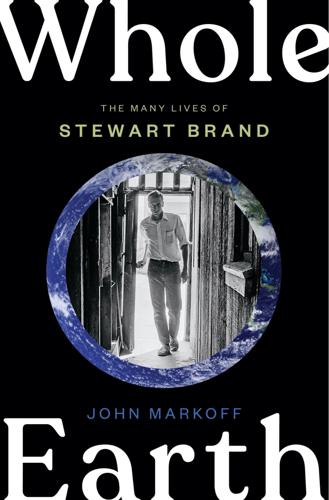
Whole Earth: The Many Lives of Stewart Brand
by
John Markoff
Published 22 Mar 2022
By endorsing vast cities, GMO foods, nuclear power, and geoengineering to forestall global warming, he threw down a gauntlet that left many Greens feeling betrayed. As he wrote, he savored the notion of going against the grain but in one sense felt the book was a reaffirmation of where he had begun with the Whole Earth Catalog four decades earlier. In the fall of 1968, he had set out by arguing, “We are as Gods and might as well get good at it.” Whole Earth Discipline opened with his new epigraph: “We are as Gods and HAVE to get good at it,” underscoring his belief in the existential threat of climate change. Nevertheless, Whole Earth Discipline also marked a fundamental break with his youthful libertarian, do-it-yourself philosophy. It was his earlier perspective that had been called out as the “California Ideology” in 1995 by two British academics in a critique of what they called “dotcom neoliberalism”—a blending of hippie libertarianism and conservative economics.
…
His faith in humanity’s identity as tool makers and users was at the heart of his confrontation with his old friend Peter Coyote, and his campaign to revive and restore species is a gamble that technology can be used to gain more than linear leverage in a positive direction. However, there is an important difference between the “We are as gods and better get good at it” in the 1968 Catalog and the “We are as gods and have to get good at it” in Whole Earth Discipline four decades later. In the preface to the Catalog, Brand was addressing individuals, young individuals of his own generation, many of whom had set out to reinvent society by moving back to the land. In the second case, “we” refers to civilization.
…
‘The mind collects stories, collects experiences, and it’s pretty good at managing aphorisms and slogans and little rhymes.’ ” —Stewart Brand as quoted by Katherine Fulton, Los Angeles Times Magazine, October 30, 1994 “Why haven’t we seen a photograph of the whole Earth yet?” —San Francisco, March 1966 “We are as Gods and we might as well get used to it.” “We are as Gods and we might as well get good at it.” —First and second printings of the first Whole Earth Catalog, October 1968 “Who are they: (Who are we?) Persons in their late twenties or early thirties mostly. Havers of families, many of them. Outlaws, dope fiends, and fanatics naturally.
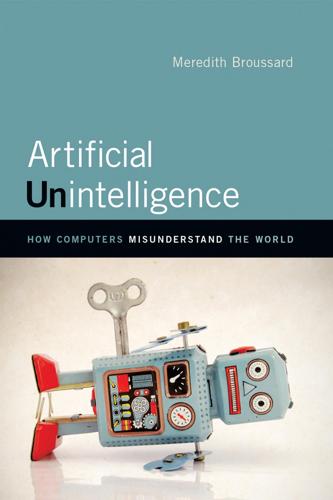
Artificial Unintelligence: How Computers Misunderstand the World
by
Meredith Broussard
Published 19 Apr 2018
“The Leibniz Step Reckoner and Curta Calculators—CHM Revolution.” 13. Kroeger, The Suffragents; Shetterly, Hidden Figures; Grier, When Computers Were Human. 14. Wolfram, “Farewell, Marvin Minsky (1927–2016).” 15. Alcor Life Extension Foundation, “Official Alcor Statement Concerning Marvin Minsky.” 16. Brand, “We Are As Gods.” 17. Turner, From Counterculture to Cyberculture. 18. Brand, “We Are As Gods.” 19. Hafner, The Well. 20. Borsook, Cyberselfish, 15. 21. Barlow, “A Declaration of the Independence of Cyberspace.” 22. Thiel, “The Education of a Libertarian.” 23. Taplin, Move Fast and Break Things. 24. Slovic, The Perception of Risk; Slovic and Slovic, Numbers and Nerves; Kahan et al., “Culture and Identity-Protective Cognition.” 25.
…
“Supporting Ethical Data Research: An Exploratory Study of Emerging Issues in Big Data and Technical Research.” Data & Society Research Institute, August 4, 2016. Brand, Stewart. The Media Lab: Inventing the Future at MIT. New York: Viking, 1987. Brand, Stewart. “We Are As Gods.” Whole Earth Catalog (blog), Winter 1998. http://www.wholeearth.com/issue/1340/article/189/we.are.as.gods. Brand, Stewart. “We Owe It All to the Hippies.” Time, March 1, 1995. http://content.time.com/time/magazine/article/0,9171,982602,00.html. Brewster, Zachary W., and Michael Lynn. “Black-White Earnings Gap among Restaurant Servers: A Replication, Extension, and Exploration of Consumer Racial Discrimination in Tipping.”
…
Operating the camera for Engelbart’s demo was Stewart Brand, the Whole Earth Catalog founder who helped organize LSD guru Ken Kesey’s infamous acid tests, massive drug-fueled cross-country bacchanals that were chronicled in Tom Wolfe’s book The Electric Kool-Aid Acid Test. Brand was the most important connector between Minsky’s world of scientists and the counterculture. “We are as gods and might as well get good at it,” Brand wrote as the first line of the Whole Earth Catalog in 1968.16 That publication was a major source of inspiration for almost all the early Internet pioneers, from Steve Jobs to tech-publishing titan Tim O’Reilly. When developers created early Internet message boards, they were trying to recreate the freewheeling commentary and recommendation culture that flourished in the back pages of the Whole Earth Catalog, where readers wrote in to share requests, tools, and tips on communal living.
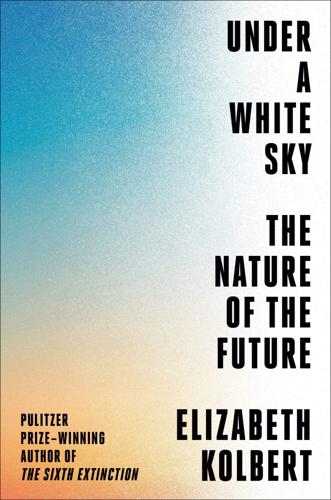
Under a White Sky: The Nature of the Future
by
Elizabeth Kolbert
Published 15 Mar 2021
Stick to a strict interpretation of the natural and these—along with thousands of other species—are goners. The issue, at this point, is not whether we’re going to alter nature, but to what end? “We are as gods and might as well get good at it,” Stewart Brand, editor of the Whole Earth Catalog, famously wrote in its first issue, published in 1968. Recently, in response to the whole-earth transformation that’s under way, Brand has sharpened his statement: “We are as gods and have to get good at it.” Brand has co-founded a group, Revive & Restore, whose stated mission is to “enhance biodiversity through new techniques of genetic rescue.”
…
Instead, they ate their way through dozens of species of Hawaii’s small endemic land snails, producing what E. O. Wilson has called “an extinction avalanche.” Responding to Brand, Wilson has observed, “We are not as gods. We’re not yet sentient or intelligent enough to be much of anything.” Paul Kingsnorth, a British writer and activist, has put it this way: “We are as gods, but we have failed to get good at it…We are Loki, killing the beautiful for fun. We are Saturn, devouring our children.” Kingsnorth has also observed, “Sometimes doing nothing is better than doing something. Sometimes it is the other way around.” 1 A few years ago, I received a sales pitch, via email, from a company offering a new service to those concerned about their role in wrecking the planet.
…
: Dr. Seuss, The Cat in the Hat Comes Back (New York: Beginner Books, 1958), 16. “an extinction avalanche”: Edward O. Wilson, The Future of Life (New York: Vintage, 2002), 53. “We are not as gods”: Wilson, Half-Earth: Our Planet’s Fight for Life (New York: Liveright, 2016), 51. “We are as gods, but we have failed to get good at it”: Paul Kingsnorth, “Life Versus the Machine,” Orion (Winter 2018), 28–33. Up in the Air 1 “The start of the switchover”: William F. Ruddiman, Plows, Plagues, and Petroleum: How Humans Took Control of Climate (Princeton, N.J.: Princeton University, 2005), 4.
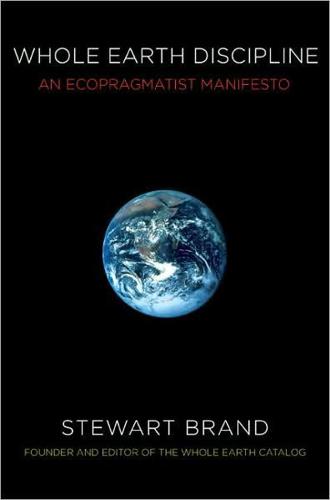
Whole Earth Discipline: An Ecopragmatist Manifesto
by
Stewart Brand
Published 15 Mar 2009
The current autocatalytic technologies that goose themselves into exponential growth are infotech (including computers, communications, and artificial intelligence), biotech, and nanotech (which is blurring into biotech). What’s more, they stimulate each other in a mutual catalysis that at times results in hyperexponential growth of power. Forty years ago, I started the Whole Earth Catalog with the words, “We are as gods, and might as well get good at it.” Those were innocent times. New situation, new motto: “We are as gods and have to get good at it.” The Whole Earth Catalog encouraged individual power; Whole Earth Discipline is more about aggregate power. The scale of the climate challenge is so vast that it cannot be met solely by grassroots groups and corporations, no matter how Green.
…
Table of Contents PENGUIN BOOKS Title Page Copyright Page Dedication • 1 • - Scale, Scope, Stakes, Speed • 2 • - City Planet • 3 • - Urban Promise • 4 • - New Nukes • 5 • - Green Genes • 6 • - Gene Dreams • 7 • - Romantics, Scientists, Engineers • 8 • - It’s All Gardening • 9 • - Planet Craft AFTERWORD RECOMMENDED READING Acknowledgements INDEX Praise for Whole Earth Discipline by Stewart Brand “If Mr. Brand is right, maybe some greens will rediscover the enthusiasm for technology expressed in his famous line at the start of The Whole Earth Catalog: ‘We are as gods and might as well get good at it.’ ” —John Tierney, The New York Times “Brand’s scary analysis is the setup for a hopeful, though controversial message: All may still be well if we get really good at using tools many greens love to hate. . . . Brand’s case for parting ways with environmentalism’s old guard rests largely on surprising developments that, he freely acknowledges, have shown some of his former views were wrong. . . .
…
Stewart Brand’s mind is exhilaratingly clear, rational, and passionate. His pen is, too.” —Matt Ridley, author of Genome and Nature Via Nuture “On the first page of this landmark book, the lateral-thinking, San Francisco tugboat-based ecologist Stewart Brand sums up his philosophy in a single line: ‘We are as gods and HAVE to get good at it.’ It’s a staggeringly arrogant statement, guaranteed to offend everyone from religious fundamentalists to those at the mystical, misty-eyed end of the green spectrum, but after reading Whole Earth Discipline, you’ll find it difficult to disagree.” —Roger Cox, The Scotsman (Edinburgh) “Brand has now issued a bold challenge to the very movement he helped create: Can you forsake ideology for the good of the planet?
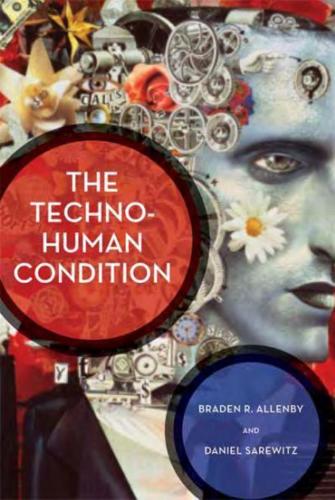
The Techno-Human Condition
by
Braden R. Allenby
and
Daniel R. Sarewitz
Published 15 Feb 2011
We are strangers in our own strange land, homeless because we have been turfed out by our very successes. As Stewart Brand put it in his first Whole Earth Catalog (1968), "We are as gods and might as well get good at it." So far, we fail that test, and we do so for reasons that the philosopher Martin Heidegger stated succinctly: So long as we do not, through thinking, experience what is, we can never belong to what will be .... The flight into tradition, out of a combination of humility and presumption, can bring about nothing in itself other than self deception and blindness in relation to the historical moment. 12 We are as gods. This became stunningly clear in 1945, in the New Mexico desert, when a human sun burst into being for the first time.
…
But when A Long, Transhuman Trip 11 Vishnu, in the Bhagavad Gita, first spoke those words, many centuries earlier, it was as a true god; when Oppenheimer did, he was a mere mortal in awe not of what God or Nature had visited upon us, but what we had built for ourselves-even as that creation equaled the destructive powers that humans had always attributed to their gods. We have since gotten used to, even blase about, the possibility of nuclear winter, in the way a two-year-old gets used to a loaded .357 magnum lying on the floor within easy reach. We are as gods? No, for we have created the power but not the mind. And as technological evolution continues to outpace the grasp of human intent, we have little time to waste. These are the questions of our time, and they cannot be engaged though flights into tradition. The more we look at transhumanism as it is currently teed up by proponents and antagonists, the more it reveals itself as something that almost approaches its opposite - a flight into tradition barely disguised by the language of high technology.
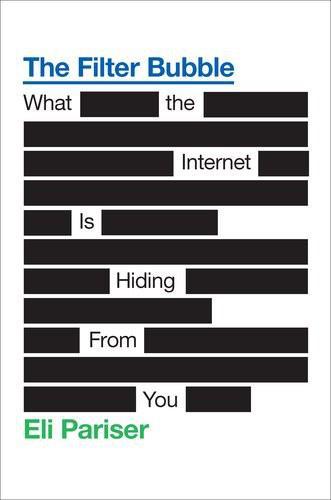
The Filter Bubble: What the Internet Is Hiding From You
by
Eli Pariser
Published 11 May 2011
Harris, “Facebook’s Advertising Fluke,” TechRepublican, Dec. 21, 2010, accessed Feb. 9, 2011, http://techrepublican.com/free-tagging/vincent-harris. 155 have the ads pulled off the air: Monica Scott, “Three TV Stations Pull ‘Demonstrably False’ Ad Attacking Pete Hoekstra,” Grand Rapids Press, May 28, 2010, accessed Dec. 17, 2010, www.mlive.com/politics/index.ssf/2010/05/three_tv_stations_pull_demonst.html. 157 “improve the likelihood that a registered Republican”: Bill Bishop, The Big Sort: Why the Clustering of Like-Minded America Is Tearing Us Apart (New York: Houghton Mifflin, 2008), 195. 157 “likely to be most salient in the politics”: Ronald Inglehart, Modernization and Postmodernization (Princeton: Princeton University Press, 1997), 10. 159 Pabst began to sponsor hipster events: Neal Stewart, “Marketing with a Whisper,” Fast Company, Jan. 11, 2003, accessed Jan. 30, 2011, www.fastcompany.com/fast50_04/winners/stewart.html. 159 “$44 in US currency”: Max Read, “Pabst Blue Ribbon Will Run You $44 a Bottle in China,” Gawker, July 21, 2010, accessed Feb. 9, 2011, http://m.gawker.com/5592399/pabst-blue-ribbon-will-run-you-44-a-bottle-in-china. 160 “I serve as a blank screen”: Barack Obama, The Audacity of Hope: Thoughts on Reclaiming the American Dream (New York: Crown, 2006), 11. 161 “We lose all perspective”: Ted Nordhaus, phone interview with author, Aug. 31, 2010. 162 “the source is basically in thought”: David Bohm, Thought as a System (New York: Routledge, 1994) 2. 163 “participants in a pool of common meaning”: David Bohm, On Dialogue (New York: Routledge, 1996), x–xi. 164 “define and express its interests”: John Dewey, The Public and Its Problems (Athens, OH: Swallow Press, 1927), 146. Chapter Six: Hello, World! 165 “no intelligence or skill in navigation”: Plato, First Alcibiades, in The Dialogues of Plato, vol. 4, trans. Benjamin Jowett (Oxford, UK: Clarendon Press, 1871), 559. 166 “We are as Gods”: Stewart Brand, Whole Earth Catalog (self-published, 1968), accessed Dec. 16, 2010, http://wholeearth.com/issue/1010/article/195/we.are.as.gods. 167 “make any man (or woman) a god”: Steven Levy, Hackers: Heroes of the Computer Revolution (New York: Penguin, 2001), 451. 167 “having some troubles with my family”: “How Eliza Works,” accessed Dec. 16, 2010, http://chayden.net/eliza/instructions.txt. 168 “way of acting without consequence”: Siva Vaidyanathan, phone interview with author, Aug. 9, 2010. 168 “not a very good program”: Douglas Rushkoff, interview with author, New York, NY, Aug. 25, 2010. 168 “politics tends to be seen by programmers”: Gabriella Coleman, “The Political Agnosticism of Free and Open Source Software and the Inadvertent Politics of Contrast,” Anthropological Quarterly, 77, no. 3 (Summer 2004): 507–19, Academic Search Premier, EBSCOhost. 170 “addictive control as well”: Levy, Hackers, 73. 172 “Howdy” is a better opener than “Hi”: Christian Rudder, “Exactly What to Say in a First Message,” Sept. 14, 2009, accessed Dec. 16, 2010, http://blog.okcupid.com/index.php/online-dating-advice-exactly-what-to-say-in-a-first-message. 173 “hackers don’t tend to know any of that”: Steven Levy, “The Unabomber and David Gelernter,” New York Times, May 21, 1995, accessed Dec. 16, 2010, www.unabombers.com/News/95-11-21-NYT.htm. 174 “engineering relationships among people”: Langdon Winner, “Do Artifacts Have Politics?”
…
It’s the power to create new universes, which is what often draws people to code in the first place. Type in a few lines, or a few thousand, strike a key, and something seems to come to life on your screen—a new space unfolds, a new engine roars. If you’re clever enough, you can make and manipulate anything you can imagine. “We are as Gods,” wrote futurist Stewart Brand on the cover of his Whole Earth Catalog in 1968, “and we might as well get good at it.” Brand’s catalog, which sprang out of the back-to-the-land movement, was a favorite among California’s emerging class of programmers and computer enthusiasts. In Brand’s view, tools and technologies turned people, normally at the mercy of their environments, into gods in control of them.
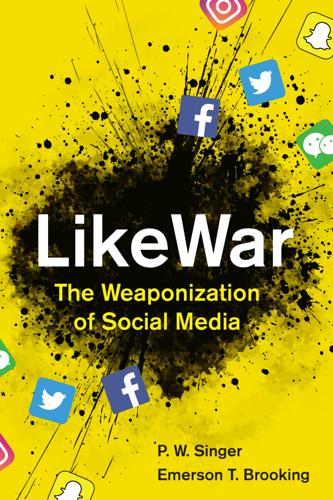
Likewar: The Weaponization of Social Media
by
Peter Warren Singer
and
Emerson T. Brooking
Published 15 Mar 2018
utm_term=.viEmNOlN3o#.xtPNkBWkwD. 256 “generative adversarial networks”: Cade Metz, “Google’s Dueling Neural Networks Spar to Get Smarter, No Humans Required,” Wired, April 11, 2017, https://www.wired.com/2017/04/googles-dueling-neural-networks-spar-get-smarter-no-humans-required/. 9. CONCLUSION 258 “We are as gods”: Stewart Brand, “We Are as Gods,” Whole Earth Catalog, Fall 1968, http://www.wholeearth.com/issue/1010/article/195/we.are.as.gods. Although the words are now indelibly his, Brand actually lifted the line from the British anthropologist Edmund Leach. 258 Long before the military: Authors’ phone interview with representatives of the Joint Readiness Training Center, November 14, 2014. 260 “built to accomplish”: “Zuckerberg’s Letter to Investors,” Reuters, February 1, 2012, https://www.reuters.com/article/us-facebook-letter-idUSTRE8102MT20120201. 261 youth is no defense: Brooke Donald, “Stanford Researchers Find Students Have Trouble Judging the Credibility of Information Online,” Stanford Graduate School of Education News Center, November 22, 2016, https://ed.stanford.edu/news/stanford-researchers-find-students-have-trouble-judging-credibility-information-online. 263 other nations now look: Michael Birnbaum, “Sweden Is Taking On Russian Interference Ahead of Fall Elections.
…
And caught in the middle will be us—all of us—part of a conflict that we definitely started but whose dynamics we will soon scarcely understand. It is a bizarre, science-fiction-seeming future. But for something that began with an SF-lovers email thread, it also seems strangely appropriate. 9 Conclusion What Do We Know, What Can We Do? We are as gods and might as well get good at it. —STEWART BRAND, “We Are as Gods” LONG BEFORE THE MILITARY CONVOY ARRIVED in the muggy town of Dara Lam, news of the meeting between the U.S. Army colonel and the unpopular governor of Kirsham province had seeped into social media. Angry with the American presence and the governor’s corruption, local citizens organized for a demonstration.

Survival of the Richest: Escape Fantasies of the Tech Billionaires
by
Douglas Rushkoff
Published 7 Sep 2022
Contents Introduction: Meet The Mindset 1 The Insulation Equation BILLIONAIRE BUNKER STRATEGIES 2 Mergers and Acquisitions ALWAYS HAVE AN EXIT STRATEGY 3 A Womb with a View YOU ARE SAFE IN YOUR TECHNO-BUBBLE 4 The Dumbwaiter Effect OUT OF SIGHT, OUT OF MIND 5 Selfish Genes SCIENTISM OVER MORALITY 6 Pedal to the Metal DEHUMANIZE, DOMINATE, AND EXTRACT 7 Exponential WHEN YOU CAN GO NO FURTHER, GO META 8 Persuasive Tech IF YOU COULD JUST PUSH A BUTTON 9 Visions from Burning Man WE ARE AS GODS 10 The Great Reset TO SAVE THE WORLD, SAVE CAPITALISM 11 The Mindset in the Mirror RESISTANCE IS FUTILE 12 Cybernetic Karma HOISTED BY THEIR OWN PETARD 13 Pattern Recognition EVERYTHING COMES BACK Acknowledgments Notes Survival of the Richest INTRODUCTION Meet The Mindset I got invited to a super-deluxe resort to deliver a speech to what I assumed would be a hundred or so investment bankers.
…
The wealthy technologists jumping on the humane technology bandwagon today may be less concerned about the impact of their platforms on people than the potential impact of those people on their own privilege and safety—especially if they figure out what has been going on all this time. As Peter Thiel’s philosophical guide René Girard would put it, the angry mob, whipped up into a mimetic frenzy, will eventually look for a scapegoat. If only there were a button one could push to make them go away. 9 Visions from Burning Man WE ARE AS GODS Y ou’re watching a TED Talk. It doesn’t matter which one. Really, with few exceptions, it doesn’t. There’s some guy standing in the trademark circular patch of red carpet, telling you that everything you know about the world is wrong. He used to think that way, too, until he had an epiphany that turned it all around.
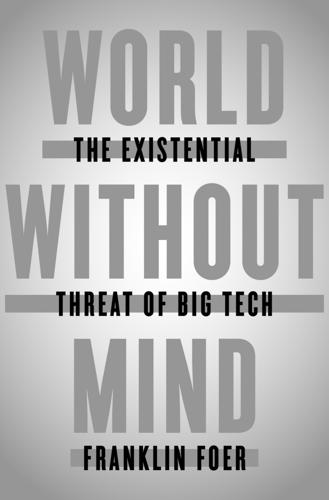
World Without Mind: The Existential Threat of Big Tech
by
Franklin Foer
Published 31 Aug 2017
There were plenty described in its pages, though it didn’t actually sell any, except from a storefront that Brand operated in the heart of what would become Silicon Valley. The catalog pointed readers toward calculators and jackets and geodesic domes, as well as books and magazines. The goods themselves were less important than the catalog’s theoretical arguments about them. In an early issue, it announced: We are as gods and might as well get good at it. So far, remotely done power and glory—as via government, big business, formal education, church—has succeeded to the point where gross defects obscure actual gains. In response to this dilemma and to these gains a realm of intimate, personal power is developing—power of the individual to conduct his own education, find his own inspiration, shape his own environment, and share his adventure with whoever is interested.
…
commune population swelled to 750,000: Judson Jerome, Families of Eden (Seabury Press, 1974), 18. “a way to be of use to communes”: “From Counterculture to Cyberculture: The Legacy of the Whole Earth Catalog,” Stanford University symposium, November 9, 2006. “one of the bibles of my generation”: Steve Jobs, Stanford University commencement address, June 12, 2005. “We are as gods”: Whole Earth Catalog, Fall 1968. “We can’t put it together. It is together”: The Last Whole Earth Catalog, June 1971. “[The catalog] helped create the conditions”: Turner, 73. “he was the guy who was giving us the early warning system”: Katherine Fulton, “How Stewart Brand Learns,” Los Angeles Times, October 30, 1994.
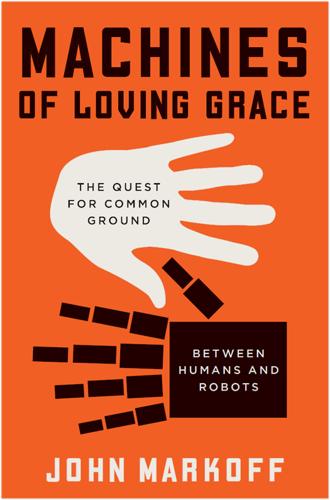
Machines of Loving Grace: The Quest for Common Ground Between Humans and Robots
by
John Markoff
Published 24 Aug 2015
Economic Growth.” 49.Craig Trudell, Yukiko Hagiwara, and Jie Ma, “Humans Replacing Robots Herald Toyota’s Vision of Future,” BloombergBusiness, April 7, 2014, http://www.bloomberg.com/news/2014-04-06/humans-replacing-robots-herald-toyota-s-vision-of-future.html. 50.Stewart Brand, “We Are As Gods,” Whole Earth Catalog, Fall 1968, http://www.wholeearth.com/issue/1010/article/195/we.are.as.gods. 51.Amir Efrati, “Google Beat Facebook for DeepMind, Creates Ethics Board,” Information, January 27, 2014, https://www.theinformation.com/google-beat-facebook-for-deepmind-creates-ethics-board. 52.“Foxconn Chairman Likens His Workforce to Animals,” WantChina Times, January 19, 2012, http://www.wantchinatimes.com/news-subclass-cnt.aspx?
…
Once Toyota had extraordinary craftsmen that were known as Kami-sama, or “gods” who had the ability to make anything, according to Toyota president Akio Toyoda.49 The craftsmen also had the human ability to act creatively and thus improve the manufacturing process. Now, to add flexibility and creativity back into their factories, Toyota chose to restore a hundred “manual-intensive” workspaces. The restoration of the Toyota gods is evocative of Stewart Brand’s opening line to the 1968 Whole Earth Catalog: “We are as gods and might as well get good at it.” Brand later acknowledged that he had borrowed the concept from British anthropologist Edmund Leach, who wrote, also in 1968: “Men have become like gods. Isn’t it about time that we understood our divinity? Science offers us total mastery over our environment and over our destiny, yet instead of rejoicing we feel deeply afraid.
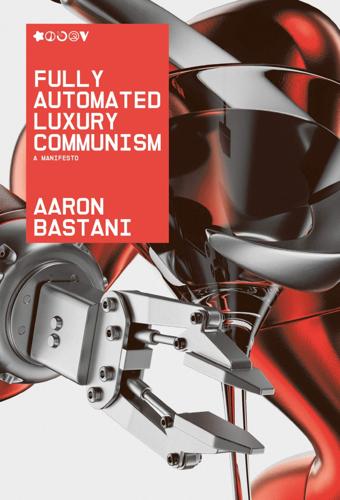
Fully Automated Luxury Communism
by
Aaron Bastani
Published 10 Jun 2019
. _________________ * Addressing the General Assembly on 22 September 1960, President Eisenhower indeed proposed that the principles of the Antarctic Treaty be applied to outer space and celestial bodies. * In 1973 dollars it was calculated to have cost $25.4 billion. 7 Editing Destiny: Age and Post-Scarcity in Health We are as gods … we might as well get good at it. Stewart Brand An Ageing Species By 2020, for the first time in human history, there will be more people over the age of sixty-five than under the age of five. By 2050 there will be more people over sixty-five than under fourteen. This is perhaps the crowning achievement of our species – nowhere else in nature do the old outnumber the young.
…
Rancière, Jacques. ‘The People Are Not a Brutal and Ignorant Mass’. Verso Books Blog, 30 January 2013. Srincek, Nick and Alex Williams. Inventing the Future. Verso Books, 2016. The Red and the Green ‘Balcombe “Fracking” Village in First Solar Panel Scheme’. BBC News, 28 January 2015. Brand, Stewart. ‘WE ARE AS GODS’. Whole Earth Catalog, Fall 1968. Against Globalism, towards Internationalism Klein, Naomi. This Changes Everything: Capitalism vs. the Climate. Penguin Books, 2015. Marx, Karl. A Contribution to the Critique of Political Economy. Progress Publishers, 1977. 10. Fundamental Principles Carillion’s Collapse and the East Coast Line Bastani, Aaron.
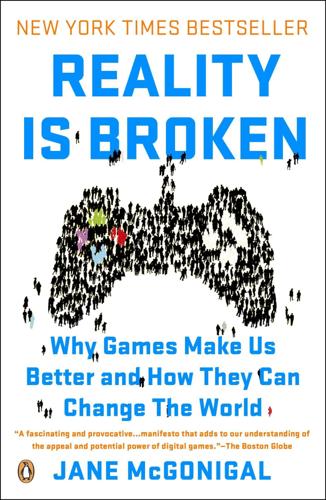
Reality Is Broken: Why Games Make Us Better and How They Can Change the World
by
Jane McGonigal
Published 20 Jan 2011
And now we must learn better ways of remaking it, this time with intention, discipline, and purpose. As Steward Brand, author of Whole Earth Discipline, puts it, “Humanity is now stuck with a planet stewardship role.... We are as gods and have to get good at it.”1 Brand is perhaps best known as the founder of the Whole Earth Catalog, a countercultural catalog of “tools and ideas to shape the environment” published from 1968 to 1972. (When he launched that catalog, he wrote, “We are as gods and might as well get good at it.”)2 In 1996 he cofounded the Long Now Foundation, a San Francisco-based foundation dedicated to long-term thinking and responsibility—for the earth, and for the survival of the human species—over the next ten thousand years and beyond.
…
Wikinomics: How Mass Collaboration Changes Everything (New York: Portfolio, 2008), 33. 12 Ibid., x. CHAPTER 14 1 Brand, Stewart. Whole Earth Discipline: An Ecopragmatist Manifesto (New York: Viking, 2009), 275, 298. 2 Brand, Stewart. “The Purpose of the Whole Earth Catalog.” Whole Earth Catalog, Fall 1968. Electronic version available at http://wholeearth.com/issue/1010/article/195/we.are.as.gods. 3 Brand, Whole Earth Discipline, 276. 4 Ibid., 298. 5 Ibid. 6 Ibid., 276. 7 “Jill Tarter and Will Wright in Conversation.” Seed, September 2, 2008. http://seedmagazine.com/content/article/seed_salon_jill_tarter_will_wright/. 8 “Spore.” Wikipedia entry, accessed May 1, 2010. http://en.wikipedia.org/wiki/Spore. 9 For a history of the term “massively multiplayer forecasting games” and their development at the Institute for the Future, see: “Institute for the Future Announces First Massively Multiplayer Forecasting Platform.”
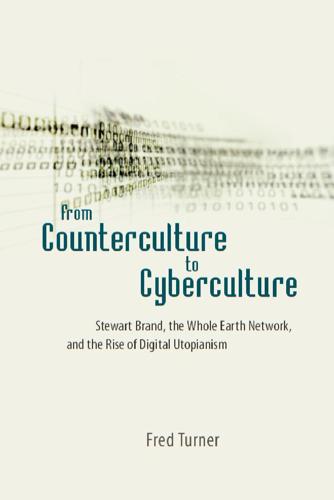
From Counterculture to Cyberculture: Stewart Brand, the Whole Earth Network, and the Rise of Digital Utopianism
by
Fred Turner
Published 31 Aug 2006
For Brand, the Whole Earth Catalog was simultaneously a whole system in its own right and a tool for its readers to use in improving the whole systems that were their lives and the world in which they lived. Readers were offered the chance to adopt two positions simultaneously in regard to the Catalog, and to their lives. Consider the Catalog’s opening statement. On the inside cover of every edition, Brand defined the Catalog’s purpose: We are as gods and might as well get good at it. So far, remotely done power and glory—as via government, big business, formal education, church—has [sic] succeeded to the point where gross defects obscure actual gains. In response to this dilemma and to these gains a realm of intimate, personal power is developing—power of the individual to conduct his own education, find his own inspiration, shape his own environment, and share his adventure with whoever is interested.
…
In 1988, four years after the Software Catalog had failed, Kelly edited Signal. Published by the Point Foundation, put together largely by Whole Earth regulars, and consisting almost entirely of brief product and book reviews, Signal looked very much like the Whole Earth Catalog. On page 2, readers could find the old statement of purpose (“We are as Gods, and might as well get good at it . . . ”). And on page 3, they could find a picture of Stewart Brand, kicked back in his office chair, a Macintosh computer on his desk. The Macintosh was a tip-off: what the old Whole Earth Catalog had been to the back-to-the-land world of the countercultural revolution, Signal would be to the emerging landscape of the information revolution.
…
As young adults, although they turned away from the war-making mind-set, the bureaucratic structures, and the partitioned psyches that they imagined characterized life in the military-industrial research establishment, many embraced its information theories, its collaborative, experimental orientation, and its underlying world-saving mission. Like the atomic scientists at Los Alamos, they would become Comprehensive Designers, of their own fates and, by vanguard example, of the fates of mankind. By 1968 more than a few communards believed, as Stewart Brand put it, that “We are as gods and we might as well get good at it.” In his 1968 volume The Young Radicals, Kenneth Keniston looked out on the fractures within the youth movements of the day and wondered how they might ultimately shape American society. “How and whether [the] tension between alienation and activism is resolved seems to me of the greatest [ 262 ] Chapter 8 importance,” he explained.
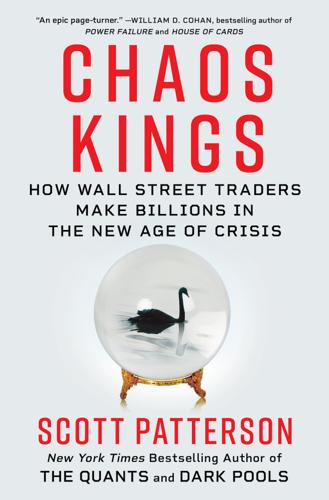
Chaos Kings: How Wall Street Traders Make Billions in the New Age of Crisis
by
Scott Patterson
Published 5 Jun 2023
Brand’s 2010 book Whole Earth Discipline: Why Dense Cities, Nuclear Power, Transgenic Crops, Restored Wildlands, Radical Science, and Geoengineering Are Necessary is a paean to outside-the-box techno-solutions to the world’s ills, including GMOs. The book “gushes about technology in a way that might raise a blush even in a spokesman for Monsanto,” a Financial Times review observed. It was an old stance for Brand. “We are as gods,” he wrote in the Whole Earth Catalog, first published in 1968, “and might as well get good at it.” This was not a view Taleb—or Rupert Read—looked fondly upon. * * * In May 2013, Taleb and Read traveled to Hay-on-Wye, a sleepy market town in Wales, to attend a popular philosophy and music festival called HowTheLightGetsIn after lyrics in a celebrated Leonard Cohen song.
…
Some 90 percent of corn, soybeans, and sugar beets on the market in the U.S. were GMOs. With global warming altering climates around the world, well-meaning scientists were hard at work designing crops that could withstand higher temperatures, more arid environments, and other dystopian side effects of the changing climate. The Promethean, Stewart Brand−espoused “we are as gods” view of the world was ascendant. * * * In 2015, Taleb, Read, Bar-Yam, and Norman wrote a short paper applying the precautionary principle to another global risk—that of runaway global warming. The climate-change policy debate too often revolved around the accuracy of models, they wrote.
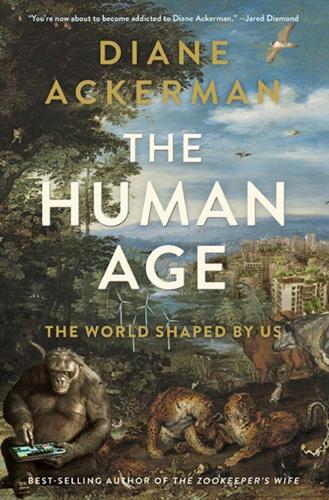
The Human Age: The World Shaped by Us
by
Diane Ackerman
Published 9 Sep 2014
It’s as if Gurdon and Yamanaka had found a way to reset the body’s clock to early development, enabling it to mint wild-card cells that haven’t chosen their career yet—without using the fetal stem cells that cause so much controversy. Space may be only one of the final frontiers. The other is surely the universe of human imagination and creative prowess in genetics. “We are as gods and might as well get good at it,” Stewart Brand began his 1968 classic, The Whole Earth Catalog, which helped to inspire the back-to-the-land movement. His 2009 book, Whole Earth Discipline, begins more worriedly: “We are as gods and have to get good at it.” Among the rarest of the rare, only several northern white rhinoceroses still exist in all the world. But, thanks to Gurdon and Yamanaka, geneticists can take DNA from the skin of a recently dead animal—say, a northern white rhino from forty years ago—turn it into “induced pluripotent stem cells” (IPS), add a dose of certain human genes, and conjure up white rhino sperm.
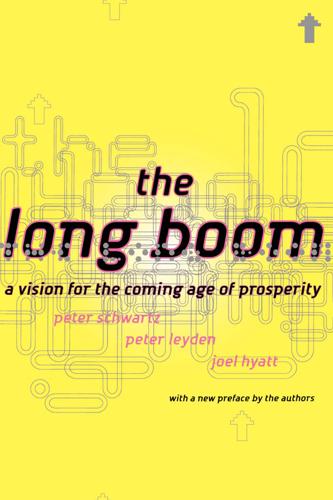
The Long Boom: A Vision for the Coming Age of Prosperity
by
Peter Schwartz
,
Peter Leyden
and
Joel Hyatt
Published 18 Oct 2000
In the next 100 years, only a portion of humanity will be in a position to tweak their genes anyhow. And our increasing understanding of genetics will also allow us to react to impending environmental crises, such as a new disease epidemic. We're not like a helpless dinosaur. We're much more in control of our destiny. "We are as gods and might as well get good at it." That was the opening line of the inaugural 1968 Whole Earth Catalog, the one that greeted the world with that picture of the earth floating in space. Stewart Brand came up with that line to set the tone for a catalog that wanted to get news of great new technologies and tools to as many people as possible.
…
They were seeing all the scientific breakthroughs and new technologies coming on-line in the 1960s, and they wanted to get people to contemplate the heady possibilities rather than just stay 200 The LOIYCJ Boom stuck in dread. Their words resonate today as we face even more heady technologies and sobering choices. "We are as gods and might as well get good at it." We can't escape this responsibility. The fact is that we now have the tools that allow us to enter the realm that once seemed reserved for the gods. We are now well on our way to understanding the human genome. This is an intellectual endeavor that is expanding the horizons of human knowledge and that can't be stopped.
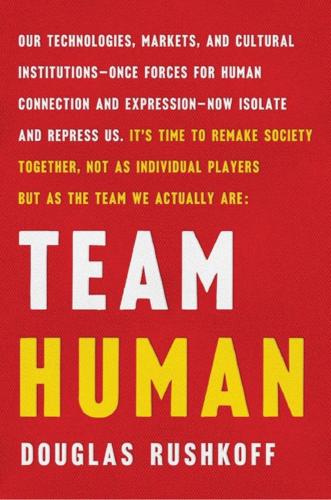
Team Human
by
Douglas Rushkoff
Published 22 Jan 2019
We have fallen from the paradise of timeless grace, live in sin, and pray for redemption Wilhelm Reich, The Mass Psychology of Fascism (New York: Farrar, Straus, and Giroux, 1980). They called it wettiko Jack D. Forbes, Columbus and Other Cannibals (New York: Seven Stories, 2011). 69. in this new spirituality we would be as gods John Brockman, “We Are As Gods and Have to Get Good at It: A Conversation with Stewart Brand,” The Edge, August 18, 2009. 70. The Soviet–American citizen diplomacy program Jeffrey J. Kripal, Esalen: America and the Religion of No Religion (Chicago: University of Chicago Press, 2008). This vision still motivates the development of artificial intelligence Erik Davis, Techgnosis: Myth, Magic, and Mysticism in the Age of Information (Berkeley: North Atlantic, 2015).
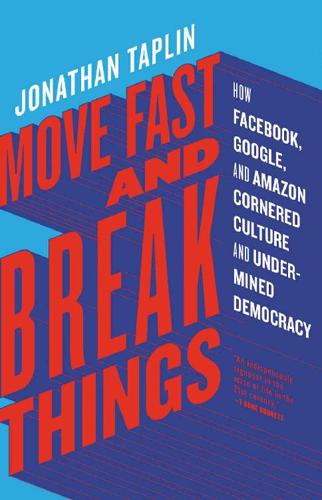
Move Fast and Break Things: How Facebook, Google, and Amazon Cornered Culture and Undermined Democracy
by
Jonathan Taplin
Published 17 Apr 2017
Engelbart himself had taken acid twice under the supervision of a Stanford psychology PhD, Jim Fadiman, at the International Foundation for Advanced Study, the Bay Area research hub for academic LSD studies, which were legal until 1967. Geeks on acid, dreaming of the future. But financed by the military-industrial complex. Complicated. The Whole Earth Catalog, subtitled Access to Tools, begins: “We are as gods, and we might as well get used to it.” Pretty bold mission statement. Was this a church? No, but the sense was that the New Communalist needed tools to create an individual identity free from the hidebound institutions of contemporary society, which was not an easy task. The introduction to the catalog continues, “A realm of intimate personal power is developing—power of the individual to conduct his own education, find his own inspiration, shape his own environment and share his adventure with whoever is interested.”
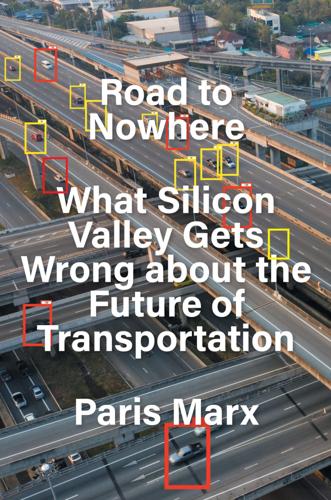
Road to Nowhere: What Silicon Valley Gets Wrong About the Future of Transportation
by
Paris Marx
Published 4 Jul 2022
The Catalog brought together Brand’s countercultural, scientific, and academic interests in the pursuit of enhancing individual freedom and went on to create an influential nexus of ideas and personalities that inspired the worldview of Silicon Valley. The inside cover of every issue contained a statement that set out the Promethean ideology behind the worldview Brand was creating in bringing together his various interests. It read: We are as gods and might as well get good at it. So far, remotely done power and glory—as via government, big business, formal education, church—has succeeded to the point where gross defects obscure actual gains. In response to this dilemma and to these gains a realm of intimate, personal power is developing—power of the individual to conduct his own education, find his own inspiration, shape his own environment, and share his adventure with whoever is interested.
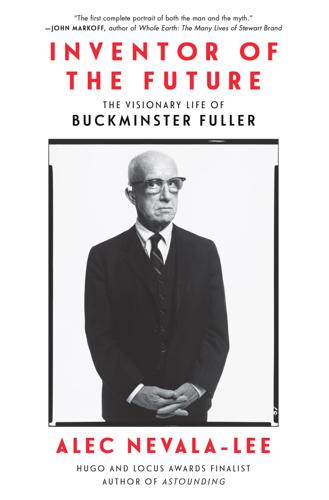
Inventor of the Future: The Visionary Life of Buckminster Fuller
by
Alec Nevala-Lee
Published 1 Aug 2022
He based its layout on Steve Baer’s Dome Cookbook, and he often reviewed books without reading them—he could generally gather from the illustrations and index whether or not they were worth recommending. The first printing had an initial run of a thousand copies, and although he started with just fifty subscribers, he sold tens of thousands by the end of the following year. The book’s tone was set by its famous opening sentence: “We are as gods and might as well get used to it.” Brand began with two pages on Fuller, whose technological philosophy influenced the emphasis that the Catalog placed on “access to tools,” and he made his admiration clear: People who beef about Fuller mainly complain about his repetition—the same ideas again and again, it’s embarrassing.
…
Barbara Ward: Ward credited the book’s title to RBF: “I borrow the comparison from Professor Buckminster Fuller” (Spaceship Earth [New York: Columbia University Press, 1966], 15). “Amid the fever I was in”: Brand, Last Whole Earth Catalog, 439. “Techniques and tools”: Ibid. “I dunno, Whole Earth Catalog”: Ibid. “with manufacturers”: Stewart Brand to RBF, April 10, 1968, quoted in Wong, 454. “We are as gods”: Stewart Brand, Whole Earth Catalog, Fall 1968, 3. “access to tools”: John Markoff, Whole Earth: The Many Lives of Stewart Brand (New York: Penguin, 2022), 138. “People who beef about Fuller”: Stewart Brand, Whole Earth Catalog, Fall 1968, 3. “one of the most original”: Ibid. “baling wire hippies”: J.
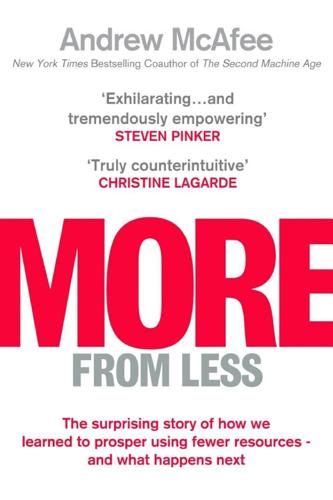
More From Less: The Surprising Story of How We Learned to Prosper Using Fewer Resources – and What Happens Next
by
Andrew McAfee
Published 30 Sep 2019
CLICK HERE TO SIGN UP Already a subscriber? Provide your email again so we can register this ebook and send you more of what you like to read. You will continue to receive exclusive offers in your inbox. To my mother, Nancy, who showed her children the world and taught them to love it We are as gods and might as well get good at it. —Stewart Brand, Whole Earth Catalog, 1968 INTRODUCTION README Listen! I will be honest with you, I do not offer the old smooth prizes, but offer rough new prizes —Walt Whitman, “Song of the Open Road,” 1856 We have finally learned how to tread more lightly on our planet.
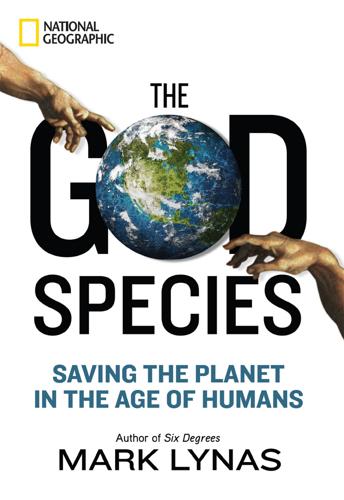
The God Species: Saving the Planet in the Age of Humans
by
Mark Lynas
Published 3 Oct 2011
And it is a story that might shed some light on the central question of this book—whether we are rebel organisms destined to destroy the biosphere, or divine apes sent to manage it intelligently and so save it from ourselves. Perhaps the environmentalist and futurist Stewart Brand put it best when he wrote these words: “We are as gods and have to get good at it.”5 Amen to that. THE DESCENT OF MAN Listening to some environmentalists talk, it is easy to get the feeling that humanity is somehow unnatural, a malign external force acting on the natural biosphere from the outside. They have it wrong. We are as natural as coral reefs or termites; our inherited physiology is entirely the product of selective pressures operating over millions of years within living systems.
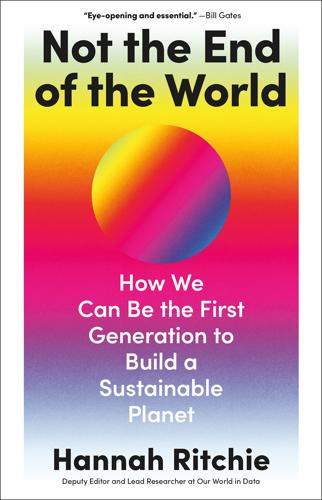
Not the End of the World
by
Hannah Ritchie
Published 9 Jan 2024
Here we’re focusing on mammals, so wild birds or poultry aren’t included. But for birds, the story is the same: we have twice as much chicken biomass as wild birds. Humans make up a tiny fraction of all life on Earth: just 0.01% of it.ii But we have been the ones that have reshaped it beyond recognition. As the environmentalist, Stewart Brand, put it: ‘We are as gods, we might as well get good at it.’ Where we are today How many species do we share our planet with? It’s such a fundamental question for understanding the world around us, but it’s one that continues to escape the world’s taxonomists. The ecologist Robert May summed it up nicely in a paper published in the journal Science: If some alien version of the Starship Enterprise visited Earth, what might be the visitors’ first question?
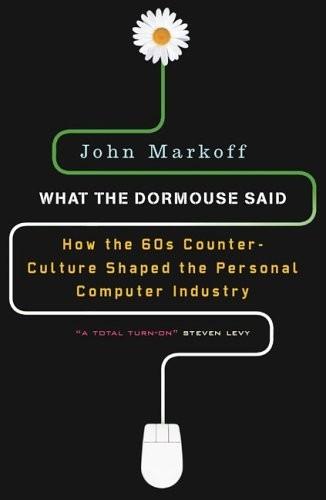
What the Dormouse Said: How the Sixties Counterculture Shaped the Personal Computer Industry
by
John Markoff
Published 1 Jan 2005
The first Whole Earth Catalog was a full-on tour of the counterculture, a hodgepodge of product descriptions, advice, commentary, and quirky features laid out in a seemingly haphazard fashion, beginning with Buckminster Fuller and ending with the I Ching; it became an instant bible and a serendipitous tool for finding interesting stuff. In doing so, it also helped a scattered community that was in the process of defining itself find an identity. “We are as gods and we might as well get used to it.” Brand’s introduction began with a phrase borrowed from British anthropologist Edmund Leach that is often remembered and quoted. It was certainly striking, a bit for its arrogance and naïveté, but it also perfectly captured the sense of power and innocence of the movement that planned to atone for its parents’ sins and remake the world in a new image.
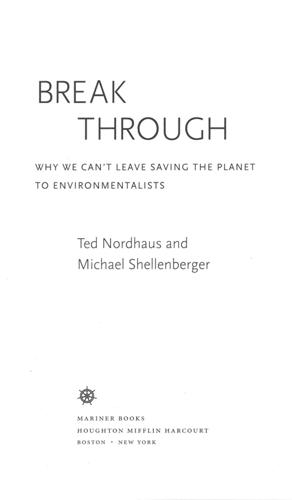
Break Through: Why We Can't Leave Saving the Planet to Environmentalists
by
Michael Shellenberger
and
Ted Nordhaus
Published 10 Mar 2009
These are some of the political choices that all of us will face in the coming years, for we will not put the world back the way it was, nor will we renounce our desire to control nature. We have risen, not fallen. In the words of one founding father of environmentalism, who long ago broke from the politics of limits, “We are as gods and might as well get good at it.”34 14. In the Greek legend, Daedalus constructs two magnificent pairs of wings out of feathers and wax for himself and his son, Icarus. As father and son fly through the air together, a plowman and a shepherd below mistake them for gods. Daedalus warns his son not to fly too close to the sun, but Icarus is so in love with his new powers that he flies higher and higher until the sun melts the wax and Icarus plunges to his death in the sea below.
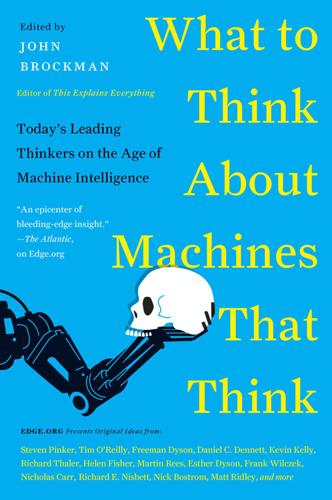
What to Think About Machines That Think: Today's Leading Thinkers on the Age of Machine Intelligence
by
John Brockman
Published 5 Oct 2015
Here’s my belief: We long to preserve ourselves as a species. For all the imaginary deities we’ve petitioned throughout history who have failed to protect us—from nature, from one another, from ourselves—we’re finally ready to call on our own enhanced, augmented minds instead. It’s a sign of social maturity that we take responsibility for ourselves. We are as gods, Stewart Brand famously said, and we may as well get good at it. We’re trying. We could fail. WELCOME TO YOUR TRANSHUMAN SELF MARCELO GLEISER Appleton Professor of Natural Philosophy, professor of physics and astronomy, Dartmouth College; author, The Island of Knowledge Consider this: You’re late for work and, in the rush, forget your cell phone.
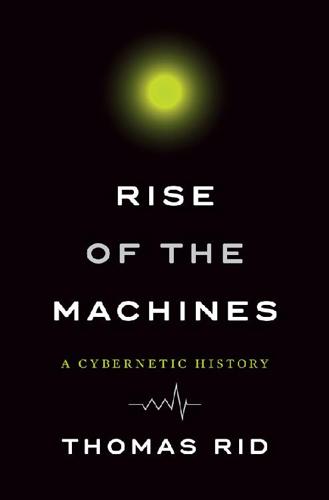
Rise of the Machines: A Cybernetic History
by
Thomas Rid
Published 27 Jun 2016
He stated his vision on the first page of every Whole Earth publication, where he explained the “function” and then the “purpose” of this widely popular publication. According to Brand, the catalog’s function was to serve as an evaluation and access device. With it, the “user” could find out what was worth getting and where to get it. The purpose was to promote tools for education, inspiration, and shaping the environment—because, Brand wrote, “We are as gods and might as well get good at it.”37 Brand’s vision was to turn the catalog itself into a tool. The CATALOG—he usually spelled it in capital letters—was to form a feedback loop. He wanted it to be a communication device that connected the far-flung community he cared so much about. He wanted the catalog to be part of something that would create an equilibrium.
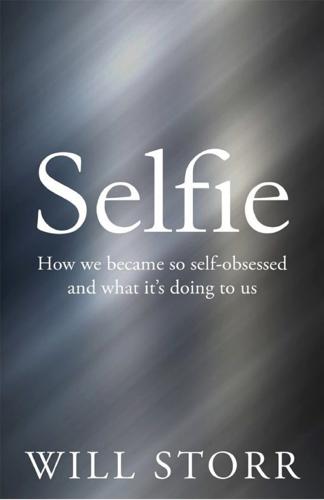
Selfie: How We Became So Self-Obsessed and What It's Doing to Us
by
Will Storr
Published 14 Jun 2017
To Engelbart’s technology, Stewart Brand would add the humanist-neoliberal ideology that still drives our computer culture today. The month following the demo saw the first proper publication of Brand’s Whole Earth Catalog, whose headquarters was blocks from Engelbart’s lab. Open the cover of this esoteric bazaar of products and philosophies and you’d see its mission statement. Declaring ‘we are as gods and might as well get good at it’, it hailed a future in which ‘a realm of intimate, personal power is developing – power of the individual to conduct his own education, find his own inspiration, shape his own environment, and share his adventure with whoever is interested.’ Brand’s biographer, Stanford University’s Professor Fred Turner, would archly note that the Catalog presented a way of changing the world through buying things, an ‘idea which has stuck around’.
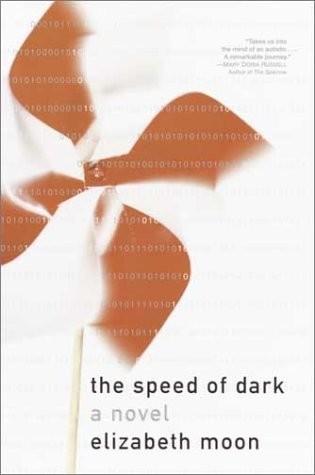
The Speed of Dark
by
Elizabeth Moon
Published 1 Jan 2002
“I think what we are supposed to want is what God wants, and the tricky thing is that much of the time we don’t know what that is,” he says. “You know,” I say. “I know part of it. God wants us to be honest, kind, helpful to one another. But whether God wants us to pursue every hint of a cure of conditions we have or acquire… I don’t know that. Only if it doesn’t interfere with who we are as God’s children, I suppose. And some things are beyond human power to cure, so we must do the best we can to cope with them. Good heavens, Lou, you come up with difficult ideas!” He is smiling at me, and it looks like a real smile, eyes and mouth and whole face. “You’d have made a very interesting seminary student.”

Make Your Own Job: How the Entrepreneurial Work Ethic Exhausted America
by
Erik Baker
Published 13 Jan 2025
“Thousands of Mexicans, Filipinos and Vietnamese immigrants” typically earned “wages of less than $5 an hour, low by industry standards,” for their work “assembling circuit boards, or inspecting chips” in high-tech factories. A “few serpents,” the author suggested, “have begun to crawl into northern California’s economic Garden of Eden.” But perhaps it was not quite appropriate to depict this unglamorous industrial exploitation as a serpent infiltrating the divine garden from the outside. “We are as gods,” Stewart Brand famously told his readers, “and we might as well get good at it.” Milton’s Lucifer could hardly have put it better himself. The Aquarian Conspiracy On April 27, 1979, workers in the production, trucking, shipping, and kitchen departments at Erewhon Trading Company voted to form a union affiliated with Local 925 of the Services Employees International Union (SEIU).

Goddess of the Market: Ayn Rand and the American Right
by
Jennifer Burns
Published 18 Oct 2009
But another strain of environmental thought had discovered Rand’s celebration of human creativity and the power of markets. Pragmatic or countercultural environmentalism focused on invention and innovation, rather than regulation, as solutions to the environmental crisis. The survivalist Whole Earth Catalog, a hippy-techno-geek bible, was an important node of this movement. “We are as gods and might as well get good at it,” the catalogue announced, striking a vaguely libertarian note with its intention to support “a realm of intimate, personal power” and “the power of the individual.” Not surprisingly the catalogue’s founder, Stewart Brand, thought Rand was an exciting thinker.46 In 1968 Brand noted in his diary, “I’m reading Atlas Shrugged these days, again, on quite a different level—keeping some watch on myself, but mostly letting the notions run on.”
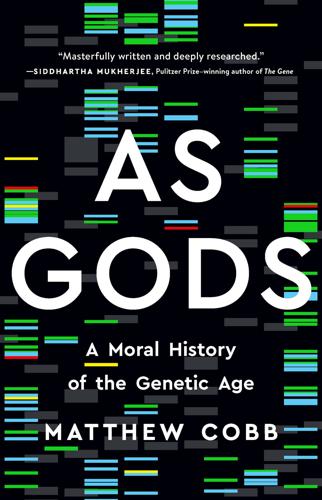
As Gods: A Moral History of the Genetic Age
by
Matthew Cobb
Published 15 Nov 2022
In 1968, in the heart of what would soon be called Silicon Valley, Stanford biology graduate Stewart Brand published the first issue of the Whole Earth Catalog.i Part hippie mail-order listing, part instruction manual for the Age of Aquarius, Brand called the Catalog ‘a guide to resources’. In the Introduction to the 1969 edition, written shortly before genetic engineering became a reality and at a time of growing doubts about science, Brand made a striking declaration that served as a manifesto for his view of the modern world: ‘We are as gods and might as well get good at it.’ Brand’s brand of hippie modernist techno-optimism runs like a glowing thread through the history of genetic engineering and its commercial application, much of which was pioneered in the same region of California, created by people of Brand’s generation and outlook.2 Down the decades that optimism, together with the entrepreneurial spirit it often encouraged, has motivated both pure research and overheated predictions of future applications.
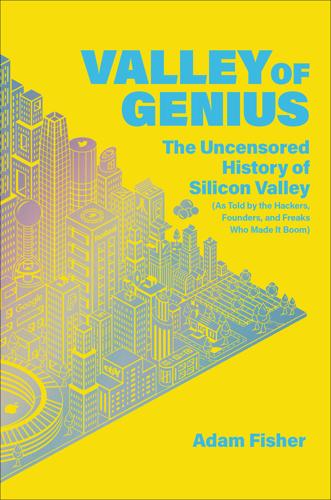
Valley of Genius: The Uncensored History of Silicon Valley (As Told by the Hackers, Founders, and Freaks Who Made It Boom)
by
Adam Fisher
Published 9 Jul 2018
Bruce Horn: We’re waiting for the right thing to happen to have the same type of mind-blowing experience that we were able to show the Apple people at PARC. There’s some work being done, but it’s very tough. And, yeah, I feel somewhat responsible. On the other hand, if somebody like Alan Kay couldn’t make it happen, how can I make it happen? BOOK TWO THE HACKER ETHIC We are as gods and might as well get good at it. —STEWART BRAND What Information Wants Heroes of the computer revolution By the mideighties, the technologists who were creating the future in Silicon Valley started to see themselves as more than simply engineers. Alvy Ray Smith and his midnight crew at Xerox PARC, the game makers at Atari, and the Macintosh team at Apple all became convinced that they were pioneers in a new expressive medium.
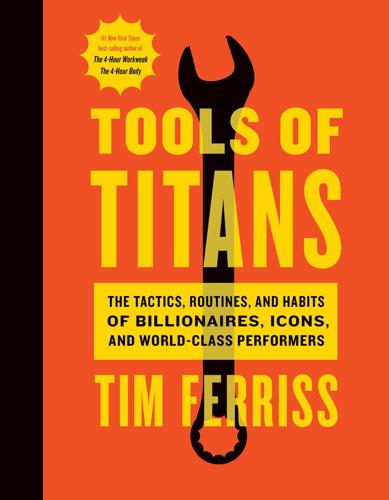
Tools of Titans: The Tactics, Routines, and Habits of Billionaires, Icons, and World-Class Performers
by
Timothy Ferriss
Published 6 Dec 2016
Rubin, Rick: “‘choose peace’ (all lowercase).” Sacca, Chris: “This form of advertising is archaic and unaccountable. Don’t waste your money.” Sethi, Ramit: “‘Tell me a secret you’ve never told anyone. I’ll keep it confidential. Email me: ramit.sethi@iwillteachyoutoberich.com.’” Silva, Jason: “‘We are as gods and might as well get good at it.’—Stewart Brand” Sivers, Derek: “Well, my real answer, if I was taking that literally, is that I would remove all the billboards in the world, and ensure that they were never replaced. . . . So, my better answer is, I would make a billboard that would say, ‘It Won’t Make You Happy,’ and I would place it outside any big shopping mall or car dealer.”